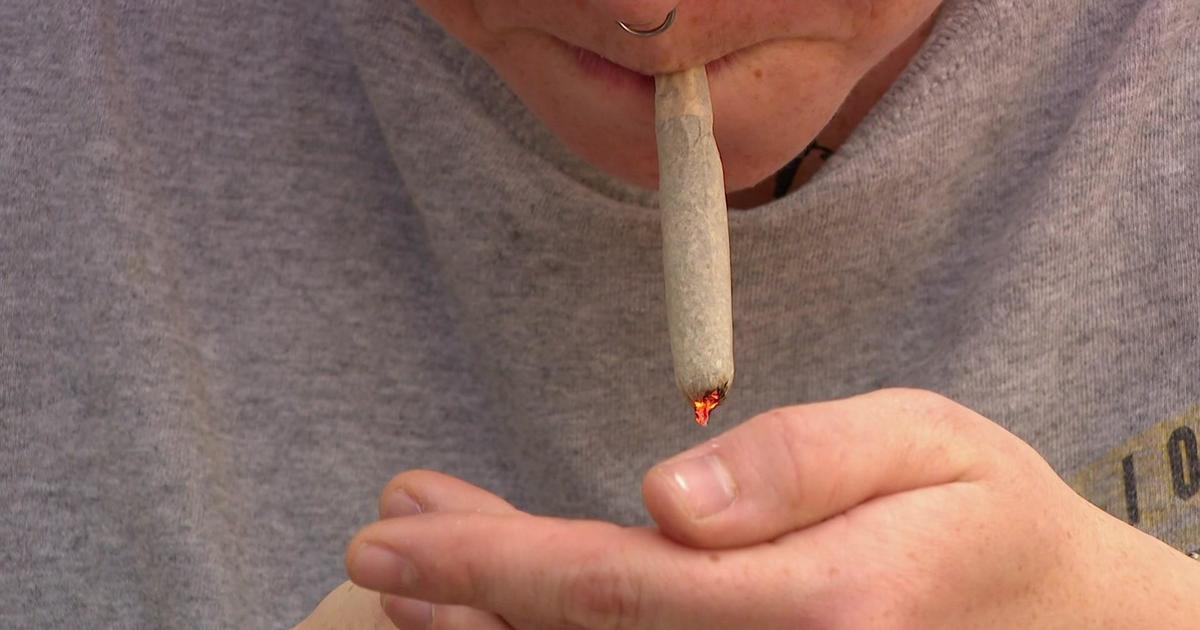Florida Judge Says Felons In Federal Lawsuit Can Register To Vote
TALLAHASSEE (CBSMiami/NSF) -- Felons in a federal lawsuit who have completed their time behind bars but can't afford to pay court-ordered fees and fines can continue to register to vote but cannot cast ballots yet, under an order issued this week by a federal judge.
U.S. District Judge Robert Hinkle rejected part of a request from the state to put on hold an October ruling in a battle stemming from a constitutional amendment designed to restore voting rights to convicted felons. Hinkle's October ruling found that a state law requiring felons to pay "legal financial obligations" to be eligible to vote ran afoul of the amendment.
Hinkle's Oct. 18 decision said Florida cannot deny the right to vote to felons who have served their sentences but are "genuinely unable" to pay legal financial obligations.
Gov. Ron DeSantis and his administration appealed the ruling and asked Hinkle to put his preliminary injunction on hold while the 11th U.S. Circuit Court of Appeals considers the case.
But in a 12-page order Thursday, Hinkle refused to block part of his decision that allows county elections supervisors to continue registering felons who assert they are unable to pay outstanding fees and fines.
The federal judge, however, blocked the ability of felons who are unable to pay legal financial obligations to vote, at least for now.
Noting the "unusual circumstances of this case," Hinkle wrote that blocking the first part of his preliminary injunction --- which allowed registration of felons to vote --- "would interfere with the ability of plaintiffs to exercise their constitutional rights."
If the appeals court upholds his injunction, the plaintiffs will "be in a position to vote on a showing of genuine inability to pay," Hinkle wrote. If the appeals court strikes down the injunction, the plaintiff won't be allowed to vote and will be removed from the voting rolls.
"Allowing a plaintiff to register, without more, will not cause irreparable harm to anyone. If it turns out the preliminary injunction was wrong, the supervisors and the secretary (of state) will have suffered an administrative burden, but not much of one, and in any event, this is not irreparable harm," Hinkle wrote.
But Hinkle agreed to the state's request to put on hold the second part of the injunction, which would allow felons to vote if they can show they are unable to pay fines or fees. Hinkle agreed to place a stay on that part of his decision until the
Atlanta-based appeals court rules or until Feb. 11, depending on which comes first. The deadline to register to vote in Florida's March 17 presidential preference primary election is Feb. 28.
If a plaintiff who is ineligible is allowed to vote, "the state will suffer irreparable harm, and the public interest will not be served," he wrote.
"The public interest in the integrity of elections outstrips, though just barely, the interest of an individual plaintiff in voting," Hinkle added.
Voting-rights and civil-rights groups filed the lawsuit after the Legislature this spring passed a measure aimed at carrying out the 2018 constitutional amendment. That measure, signed by DeSantis, required felons to pay legal financial obligations, such as court-ordered fines and fees, before being able to vote --- a move critics likened to a poll tax from the Jim Crow era.
Hinkle's Thursday decision came after he blistered attorneys representing DeSantis and Secretary of State Laurel Lee during a Dec. 3 hearing. The state has argued that an appellate ruling upholding Hinkle's October decision could render the entire constitutional amendment void, a position that has drawn Hinkle's ire.
"Even in our highly partisan age, the fundamental principles governing elections should garner unequivocal support from both sides. Every legally eligible voter should be allowed to vote. Those who are ineligible should not be allowed to vote. The side that gets the most legally cast votes should win," Hinkle wrote Thursday. "Emotions run hot on both sides. But the level of professionalism and candor expected of the attorneys is not lower --- if anything it is higher --- because emotions run hot and the stakes are high. Ignoring or misrepresenting precedent or the record does not advance one's cause."
Hinkle has repeatedly pointed to a previous ruling by the Atlanta-based appeals court in a class-action lawsuit challenging Florida's clemency process. While the decision in the case upheld the state's clemency procedure, a footnote specifically addressed voting-rights issues at play in the current lawsuit.
"Access to the (voting) franchise cannot be made to depend on an individual's financial resources," the appeals court wrote in the Johnson case.
Despite that decision, the state has said felons must pay all outstanding legal financial obligations to be eligible to vote. Hinkle on Thursday chastised the state for its take on Johnson decision.
"A poll tax, of course, is unconstitutional regardless of ability to pay. Whether a person can be required to pay a sum as a condition of voting, regardless of ability to pay, is a different issue from whether a person can be denied the right to vote for failing to pay an otherwise-proper exaction that the person is genuinely unable to pay," Hinkle wrote.
The federal appeals court has scheduled oral arguments Jan. 28.
Hinkle said he had not "overlooked" the possibility that, if the appeals court reverses the injunction, a plaintiff who has registered may attempt to vote illegally.
"At least for the 17 plaintiffs directly affected by the preliminary injunction, the risk seems slight; it would be a brazen plaintiff who attempted to vote anyway, and an incompetent secretary or supervisor who allowed it to happen," he wrote. "Eliminating dishonesty is a separate problem, more imaginary than real, that has little if any relevance to the stay issue."
While Hinkle's preliminary injunction appeared to apply narrowly to the 17 named plaintiffs in the case, his comments during the Dec. 3 hearing, as well as a ruling in an unrelated challenge to Florida's former same-sex marriage ban, might offer insight into how broadly he would expect it to apply.
In a 2015 order, Hinkle noted that a preliminary injunction in the same-sex marriage case did not require clerks of court to issue licenses to applicants who weren't plaintiffs.
But "the Constitution requires the clerk to issue such licenses," he stressed, a notion he also emphasized during this month's hearing in the felons-voting case.
(©2019 CBS Local Media. All rights reserved. This material may not be published, broadcast, rewritten, or redistributed. The News Service of Florida's Dara Kam contributed to this report.)



